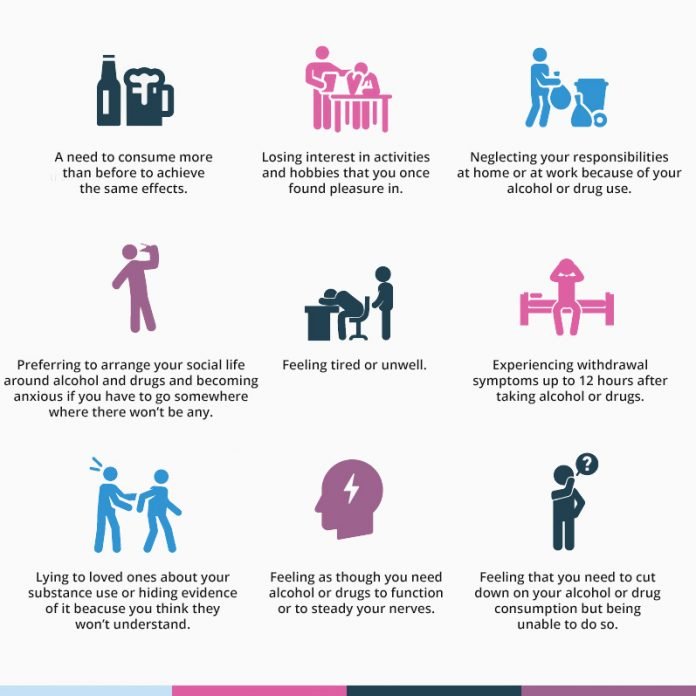Last Updated on February 7, 2025 by Bisma Sehar
Table of Contents
What is alcohol abuse and how can you tell if someone is abusing it
Alcohol abuse is a pattern of drinking that results in one or more of the following problems: failing to fulfill major responsibilities at work, school, or home; drinking in situations that are physically dangerous, such as while driving or operating machinery; continuing to drink despite ongoing relationship problems that are caused or worsened by drinking; and having blackouts due to heavy drinking. Alcohol abuse can also lead to alcoholism, which is a chronic and progressive disease that includes symptoms like a strong need to drink, difficulties in controlling drinking, and continuing to drink even when it causes physical, mental, social, or financial problems. If you think someone you know may be abusing alcohol, look for signs like these and others: repeated legal problems related to alcohol; social or financial problems caused by drinking; frequently missing work or school due to drinking; drinking in secret or hiding alcohol consumption, and experiencing blackouts due to heavy drinking. If you see any of these signs in yourself or someone else, it’s important to get help from a professional right away. Alcohol abuse can lead to serious consequences, but with treatment, it is possible to recover and live a healthy life.
How to get help for an alcoholic loved one
According to the National Institute on Alcohol Abuse and Alcoholism, around 15 million American adults suffer from alcohol use disorder. This means that many people have a loved one who is struggling with alcoholism. While it can be difficult to watch someone you care about suffer, there are ways that you can help. The first step is to learn as much as you can about alcoholism and its effects. There are many resources available, including books, websites, and support groups. Once you have a better understanding of the disease, you can start to have conversations with your loved one about their drinking. It is important to be supportive and non-judgmental. You may also want to offer to go to counseling sessions together or join a support group for family members of alcoholics. If your loved one is resistant to getting help, you may need to stage an intervention. This is a difficult but necessary step that should only be taken with the help of a professional. By taking action, you can help your loved one get the treatment they need to recover from alcoholism.
What to expect from treatment for alcohol abuse
Entering addiction treatment can be a daunting experience, but it is also an opportunity to begin the journey to recovery. At an addiction treatment center, you will receive care and support from a team of professionals who are dedicated to helping you overcome your addiction. The first step in treatment is usually detoxification, which is a process of ridding your body of alcohol. This can be uncomfortable and even dangerous, so it is important to do it under medical supervision. After detox, you will begin therapy, which can take many different forms. You will work with your therapist to identify the underlying causes of your addiction and develop coping mechanisms for dealing with triggers and cravings. You may also participate in group therapy, where you will share your experiences with other people who are struggling with addiction. Addiction treatment is a long and difficult process, but it is also an opportunity to start fresh and build a new life for yourself.
How to prevent relapse in people who have recovered from alcohol abuse Relapse is a common challenge for people who have recovered from alcohol abuse. There are many factors that can contribute to relapse, including stress, anxiety, and temptation. However, there are also many things that people can do to prevent relapse. One of the most important things is to develop a support network of friends, family, and other recovered alcoholics. This support network can provide practical help and emotional support when times are tough. In addition, it’s important to develop healthy coping mechanisms for dealing with stress and anxiety. Exercise, meditation, and journaling are all excellent ways to deal with difficult emotions constructively. Finally, it’s important, to be honest with yourself about your triggers and temptations. If you know what puts you at risk of drinking again, you can make a plan for how to avoid those situations or how to deal with them if they do arise. Recovery from alcohol abuse is a lifelong journey, but by taking these steps, you can increase your chances of success.
Apart from that ifyou want to know about Mistakes to Avoid When Quitting Alcohol then please visit our Health page
















